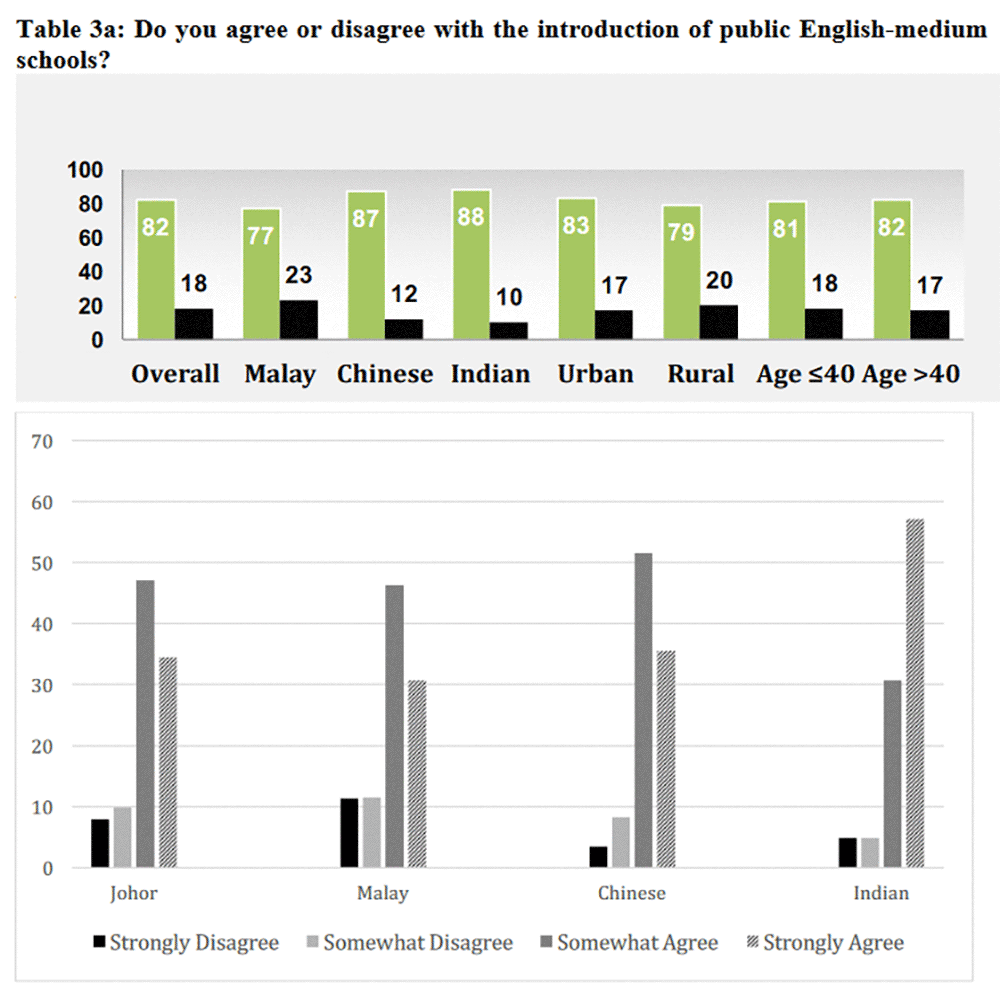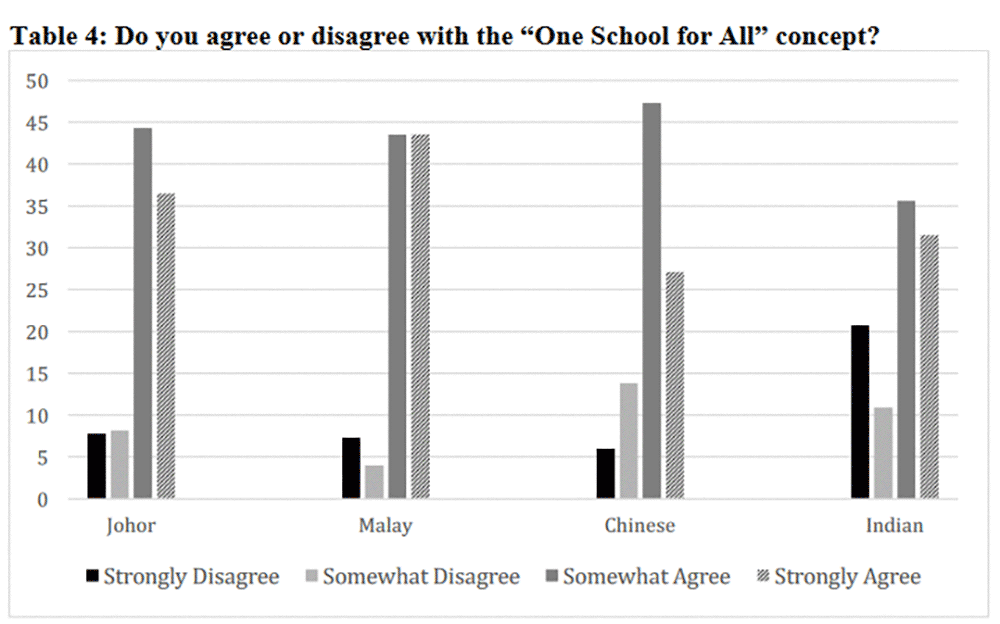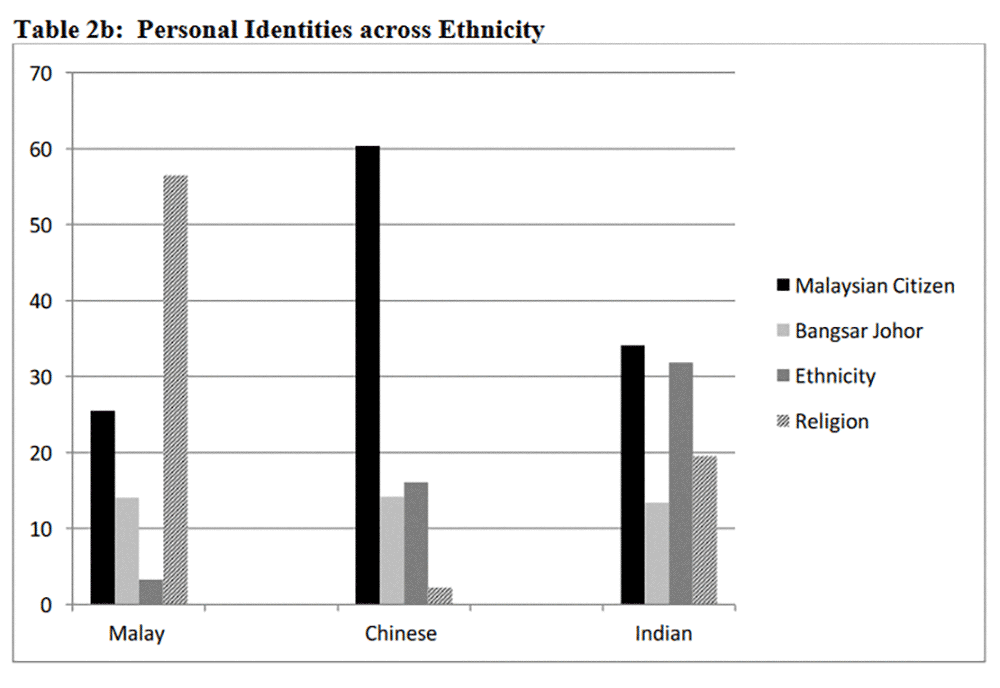A survey published by Singapore's ISEAS-Yusof Ishak Institute has found that a majority of Johoreans support bringing back English-medium schools.
Of the 2,011 respondents, 82 percent voiced their agreement.
"This support is strong across all demographic segments, even among Malay and rural respondents who in the past were not that supportive of the policy to teach mathematics and science in English.
"Among Malay respondents, 77 percent agree and 23 percent disagree with introducing public English-medium schools," the survey stated.
Iseas-Yusof Ishak Institute said, as expected, the survey found that support was much higher among Chinese respondents (87 percent) and Indian respondents (88 percent).
Indian respondents were the most enthusiastic, with 57.2 percent strongly agreeing.
"Perhaps the very strong support among Johoreans for the introduction of public English-medium schools is due to their cognisance of the success of Singapore's English-medium national school system in producing graduates who are competent in English and who are internationally employable," it stated.

One school for all
As for the "one school for all" concept, the survey also registered strong support vis-à-vis 80.8 percent.
"As expected, 87.1 percent of Malay respondents agree to it. Among the Chinese, 47.3 percent somewhat agree and 27.1 percent strongly agree and nearly 20 percent do not support the concept.
"Indian respondents registered the lowest support for the concept, with 67.1 percent agreeing and 31.6 percent disagreeing.
"The strong support among Chinese and Indian respondents for the 'one school for all' concept contradicts the prevailing belief that the majority of Indians and Chinese in the country do not support the 'one school for all' concept because it would mean closing down Tamil and Chinese schools," it added.
According to ISEAS-Yusof Ishak Institute, a possible explanation for the strong Chinese and Indian support in Johor could be due to the impression that the state will introduce a single-stream education system modelled on the Singapore English-medium school system.

Previously, in an interview with The Star, Johor ruler Sultan Ibrahim Sultan Iskandar had noted that English proficiency among the people was deteriorating and called for action to be taken to halt the slide.
The sultan felt there was a need to have a single stream education system instead of the present national, Chinese and Tamil schools.
Religious identification
The survey was conducted in May and June 2017, where respondents were interviewed via fixed-line and mobile phones.
Respondents consisted of Malaysian citizens aged 18 and above who resided in Johor. They were selected on the basis of random stratified sampling across the district of residence, controlled by quota for ethnicity, age and gender.
There were 1,104 (55 percent) ethnic Malay respondents, 758 (38 percent) ethnic Chinese respondents, and 149 (seven percent) ethnic Indian respondents.
Apart from education, the survey also gathered feedback on the Bangsa Johor identity and how Johoreans viewed the royal family.
In its conclusion, ISEAS-Yusof Ishak Institute said the survey registered strong support for the Bangsa Johor identity across all demographic segments.
"Nevertheless, the identification with Bangsa Johor ranked much lower than their attachment to being citizens of Malaysia. Among Malay respondents, religious affiliation is the most important while Chinese and Indian respondents identify themselves," it added.

As for the royal family, ISEAS-Yusof Ishak Institute said the respect and popularity of the Johor royal family are confirmed by the positive endorsements from all respondents.
The royal family is regarded as a good steward of Johor's resources, with the sultan seen as looking after the personal interests of the citizens and a good guardian of Islam.
The respondents also felt that the sultan should intervene in politics when necessary.
"For the question about whether the Johor royalty should refrain from business ventures, the support is slightly more than 50 percent," it added.

